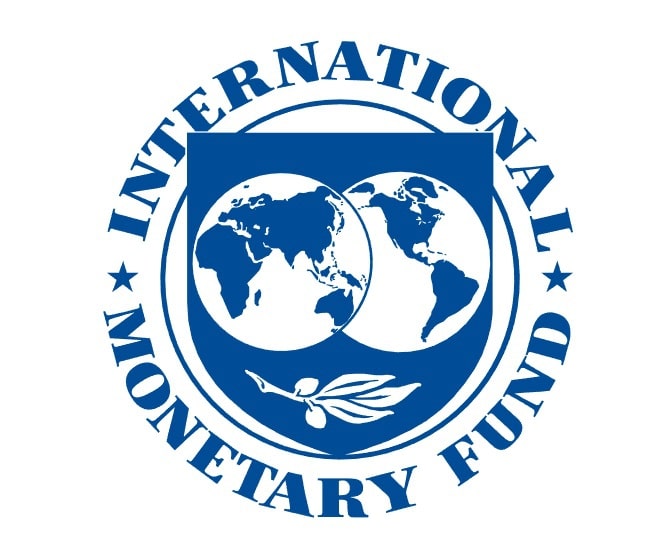A team from the International Monetary Fund (IMF) led by Jose Gijon, Mission Chief for Guinea Bissau, held videoconferences and meetings in Bissau during February 28– March 11, 2024, to discuss macroeconomic policies in the context of the Fourth and Fifth Reviews of the ECF arrangement [[1]]. The initial arrangement was approved by the IMF Executive Board on January 30, 2023 , for a total amount of SDR 28.4 million (about US$ 37.9 million) on January 30, 2023. The IMF Executive Board granted an augmentation of access (140 percent of quota or SDR 39.76 million) on November 29, 2023.
At the conclusion of the mission, Mr. Gijon issued the following statement:
“I am pleased to announce that the Guinea Bissau authorities and the IMF staff have reached a staff-level agreement on economic and financial policies that could support the approval of the Fourth and Fifth Reviews of the ECF program. Conclusion of the Fourth and Fifth Reviews by the IMF Executive Board, tentatively scheduled for mid-May 2024, would enable the disbursement of SDR 6.17 million (about US$ 8.2 million), bringing total disbursement under the arrangement to SDR 19.44 million (about US$ 25.9 million).
“Economic growth was resilient in 2023 and reached 4.3 percent, slightly higher than in 2022. Headline inflation averaged 7.2 percent and would have reached double digits without tax cuts on fuel and food, and rice price subsidies introduced in late 2023. The current account deficit reached 8.6 percent of GDP, reflecting a severe terms of trade shock.
“Program performance during the fourth and fifth reviews was weaker than expected in the context of a challenging economic and socio-political environment. The floor on tax revenue was missed for both September and December test dates, mainly because of tax cuts on rice and fuel introduced in the last quarter of 2023. The ceiling on wages was missed for September due to lower-than-expected savings from the 2022 census, but a strict no-new-hiring policy made the deviation marginal in December. The floor on the domestic primary balance for September was missed due to discretionary spending overruns during the legislative elections period. The floor for December was missed due to tax cuts, lower-than-expected fishing revenue, and higher discretionary spending. The ceiling on domestic arrears was missed for December due to delays in debt service payments.
“The authorities made some progress in implementing structural reforms. Three out of nine structural benchmarks (SBs) for December 2023 were met while two SBs were completed with delays. Three SBs for March 2024 and one for September 2024 have already been met. The authorities requested the cancellation of the SB to submit the 2024 budget to Parliament, which was dissolved in December 2023. The continuous SBs on external debt service and the Technical Committee of Arbitration of Budgetary Expenditure (COTADO) were not met, because together with the Treasury Committee, they were discontinued during last quarter of 2023. Both committees have resumed their activities in early 2024.
“Going forward, the authorities face important near-term risks, including policy implementation challenges stemming from a challenging socio-political climate and capacity constraints. Improving domestic revenue mobilization and strengthening expenditure controls will be key to support fiscal consolidation and put public debt on a firm downward trajectory. Moreover, the authorities should sustain efforts to mitigate fiscal risks from State-Owned enterprises, improve cash and debt management, and enhance governance. Political stability will be critical to support these reforms. Finally, support from the international community continues to be crucial for the successful implementation of the IMF-supported program.
“The team thanks the authorities for their openness, and constructive discussions and looks forward to continuous close cooperation through the Extended Credit Facility (ECF) arrangement over the next reviews.
“The IMF team met with H.E. President Sissoco Embaló, Prime Minister Barros, Minister of Finance Te, Minister of Economy, Planning and Regional Integration Sambu, Minister of Public Administration, Labor, Vocational Training and Social Security Hijazy, BCEAO National Director Cassama, President of the Court of Auditors Baldé. The team met with officials from the Ministries of Finance, Economy, Agriculture, Fisheries, Justice, Public Health, the National Directorate of the BCEAO, the National Institute of Statistics, the Financial Intelligence Unit, the procurement authorities, and other officials. The team also met with representatives of public sector enterprises, as well as key bilateral and international partners.”
Key links:
[1] The Extended Credit Facility (ECF) provides financial assistance to countries with protracted balance of payments problems. It supports countries’ economic programs aimed at moving toward a stable and sustainable macroeconomic position consistent with strong and durable poverty reduction and growth. The ECF may also help catalyze additional foreign aid.
Distributed by APO Group on behalf of International Monetary Fund (IMF).
